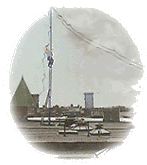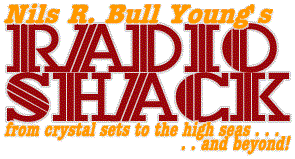
There are four quotes on
my index page. The quotes are interreferential, each a witness to animals masquerading as human beings. The first quote is from a letter of
reprimand that I received from Andy Montesano. He handed me the letter for questioning a management
decision to have a female student employee of Wright State University's media
services department work from 9:00 p.m. until 2:00 a.m., alone and unassisted.
When I received that reprimand, I told Montesano that his words insulted the ethics that I had learned from my parents.
I did not tell him that such thinking made is possible for the soldiers of
the Reich to massacre six million people during the Shoah. I did not tell
him that such thinking sent over 15 million people to their deaths in forced-labor
camps during the Stalinist "Great Terror." And I did not tell Montesano
that such thinking was contrary to the words of the Bible (the last quote on my front page), which, assuming Montesano is a practicing Roman Catholic, are
part of the religion by which he lives and raises his son and daughter.
The second quote is from Tom Mills, one of Montesano's protege's. Mills is
one of those classic "know-it-all" whizz kids that open their mouths a lot
more often than they engage their brains. Of course, Mills' behaviour
has been rewarded by promotions & advancements.
The third quote is from the story "Cabo de Hornos," written by Chilean author
Francisco Coloane. In English the quote reads:
". . . the only persons who ventured into
those regions were audacious trappers of nutrias and hunters of wolves,
people of distinct races, hardened men whose hearts were nothing more than
another clenched fist."
Coloane's words are haunting.
You begin to get an even clearer picture of this arrogant, self-important bully when you consider how he has bragged about driving
against oncoming traffic during a day of bad weather when the roads were snowy and covered with
ice. Montesano was on his way to pick up his children
from a day-care center. He decided that his need to get to the day-care
center was greater than the need for others on the road to get to wherever
they were going. He spoke proudly of having crossed the median and having
driven against oncoming traffic. This action, which he thought showed his
audacious drive and leadership, could have resulted in loss of life or serious
bodily harm not only to others on the road, but to Montesano himself. Evenso,
he thought that his need was greater and that the safety of others was of
no concern to him.
One of Montesano's neighbors, who also works at Wright State University, joked
that Montesano "wants to run the world like his own private protection racket."
Montesano is, however, not alone in this regard. Everywhere there are street
punks, criminals, untrustworthy public officials, hooligans and bullies like
Montesano, daily making their way in the world more important than yours
or mine.
The climate here and around the world is not conducive to the survival of
human ethics. We must all assume the attitude that each person is our individual
responsibility. Montesano and Mills are arrogantly wrong in his statement.
The testimony to the possibility of harm to others by those who evidently
think as does Montesano is copious and simply unavoidable.
Montesano owes an apology to me and the memory of my parents, who taught me
that we are todos de la misma sangre, all of the same blood. Montesano's
statement is an insult to those who died in the Shoah and to those who died
trying to prevent its happening. Montesano's statement is an insult to the
over 58 thousand men and women whose names are now engraved on black rock
in Washington DC, each of whom died while Montesano was in high school, learning
whatever ethics his statement might now profess.
If you believe as I do, then, as my father used to say, "así sea,"
so be it. We are of human kin. If not, then you are an insult to the human
blood that flows in your veins, pumped by a heart that is "nothing more
than another clenched fist."
You may now return to reading my otherwise delightful extrapolations on the
narrative self . . . on my index page and the pages to which it connects.
 Return to the front page . . .
Return to the front page . . .




